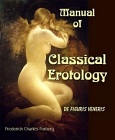
An Account of Egypt

Description
Account of Egypt
By
Herodotus
Translated By G. C. Macaulay
Read the History of Egypt written about 2500 years ago. It is rare that such an ancient history comes down to us from the ancient ages.
I suppose and as my judgment compels me to think; so that the Egyptians would have learnt the names of these gods even more than that of Heracles. In fact however Heracles is a very ancient Egyptian god; and (as they say themselves) it is seventeen thousand years to the beginning of the reign of Amasis from the time when the twelve gods, of whom they count that Heracles is one, were begotten of the eight gods.
Excerpt from Preface:
 The subject of the history of Herodotus is the struggle between the Greeks and the barbarians, which he brings down to the battle of Mycale in 479 B. C. The work, as we have it, is divided into nine books, named after the nine Muses, but this division is probably due to the Alexandrine grammarians. His information he gathered mainly from oral sources, as he traveled through Asia Minor, down into Egypt, round the Black Sea, and into various parts of Greece and the neighboring countries. The chronological narrative halts from time to time to give opportunity for descriptions of the country, the people, and their customs and previous history; and the political account is constantly varied by rare tales and wonders.
The subject of the history of Herodotus is the struggle between the Greeks and the barbarians, which he brings down to the battle of Mycale in 479 B. C. The work, as we have it, is divided into nine books, named after the nine Muses, but this division is probably due to the Alexandrine grammarians. His information he gathered mainly from oral sources, as he traveled through Asia Minor, down into Egypt, round the Black Sea, and into various parts of Greece and the neighboring countries. The chronological narrative halts from time to time to give opportunity for descriptions of the country, the people, and their customs and previous history; and the political account is constantly varied by rare tales and wonders.
Among these descriptions of countries the most fascinating to the modern, as it was to the ancient, reader is his account of the marvels of the land of Egypt. From the priests at Memphis, Heliopolis, and the Egyptian Thebes he learned what he reports of the size of the country, the wonders of the Nile, the ceremonies of their religion, the sacredness of their animals. He tells also of the strange ways of the crocodile and of that marvelous bird, the Phoenix; of dress and funerals and embalming; of the eating of lotos and papyrus; of the pyramids and the great labyrinth; of their kings and queens and courtesans.
Yet Herodotus is not a mere teller of strange tales. However credulous he may appear to a modern judgment, he takes care to keep separate what he knows by his own observation from what he has merely inferred and from what he has been told. He is candid about acknowledging ignorance, and when versions differ he gives both. Thus the modern scientific historian, with other means of corroboration, can sometimes learn from Herodotus more than Herodotus himself knew.
There is abundant evidence, too, that Herodotus had a philosophy of history. The unity which marks his work is due not only to the strong Greek national feeling running through it, the feeling that rises to a height in such passages as the descriptions of the battles of Marathon, Thermopylae, and Salamis, but also to his profound belief in Fate and in Nemesis. To his belief in Fate is due the frequent quoting of oracles and their fulfilment, the frequent references to things foreordained by Providence. The working of Nemesis he finds in the disasters that befall men and nations whose towering prosperity awakens the jealousy of the gods. The final overthrow of the Persians, which forms his main theme, is only one specially conspicuous example of the operation of this force from which human life can never free itself.
Softcover, 8¼" x 5¼, 130+ pages
Perfect-Bound















